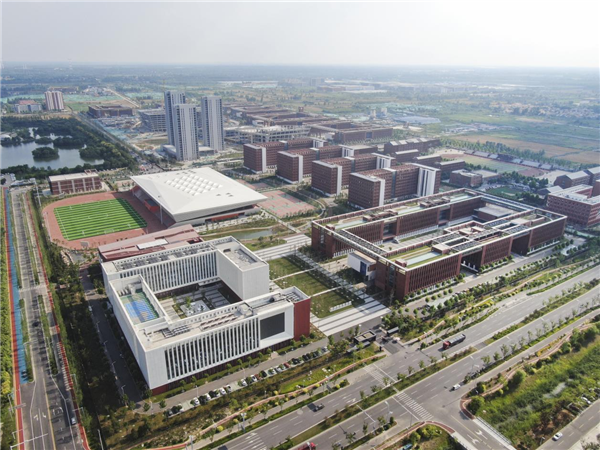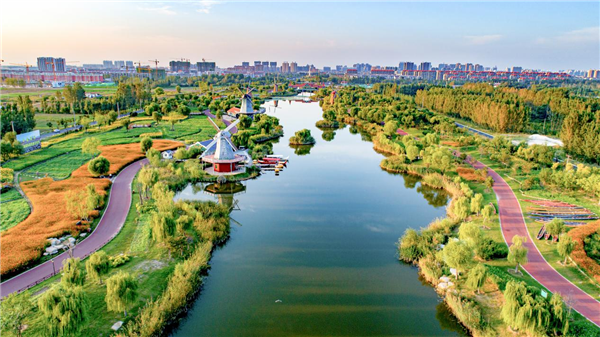Urban development makes life easier in Binzhou zone

The Binzhou Economic and Technological Development Zone sees significant improvements in various areas, achieving a notable rise in its comprehensive development level. [Photo by Wu Lingyan for chinadaily.com.cn]
In the past two years, the Binzhou Economic and Technological Development Zone (Binzhou ETDZ) – located in the city of Binzhou in East China's Shandong province - has seen significant improvements in various areas, including development momentum, quality of life, people's wellbeing, and governance capacity, achieving a notable rise in its comprehensive development level.
Industry is crucial to urban development, urban functions, and employment. The zone is now vigorously advancing its competitive industries, including healthcare and medicine, intelligent manufacturing, new materials, and modern agriculture.
It has successively introduced 56 industrial chain-driven projects, including an aerospace industrial park and Xi'an Inno Aviation Technology Co Ltd. Emerging industries like the low-altitude economy and artificial intelligence are gaining momentum, continuously aggregating the zone’s new quality productive forces. In 2023, the output value of high-tech industries in Binzhou ETDZ accounted for 70.12 percent of the zone's industrial output value above a certain scale, the highest in the city.

Binzhou ETDZ takes a number of measures to protect the environment around Qinghuang River, the zone's mother river. [Photo by Wu Lingyan for chinadaily.com.cn]
Meanwhile, the zone has attached great importance to improving people's livelihoods. It allocates over 10 million yuan ($1.38 million) in financial investment annually, offering things like free school uniforms, trustworthy canteens, safe school buses, free parent training, and free drinking water to benefit every child in urban and rural areas.
In recent years, 19 resettlement communities have been built, providing 11,056 resettlement houses and significantly improving the living environment for local residents. (Edited by Xie Zhenzhen)








